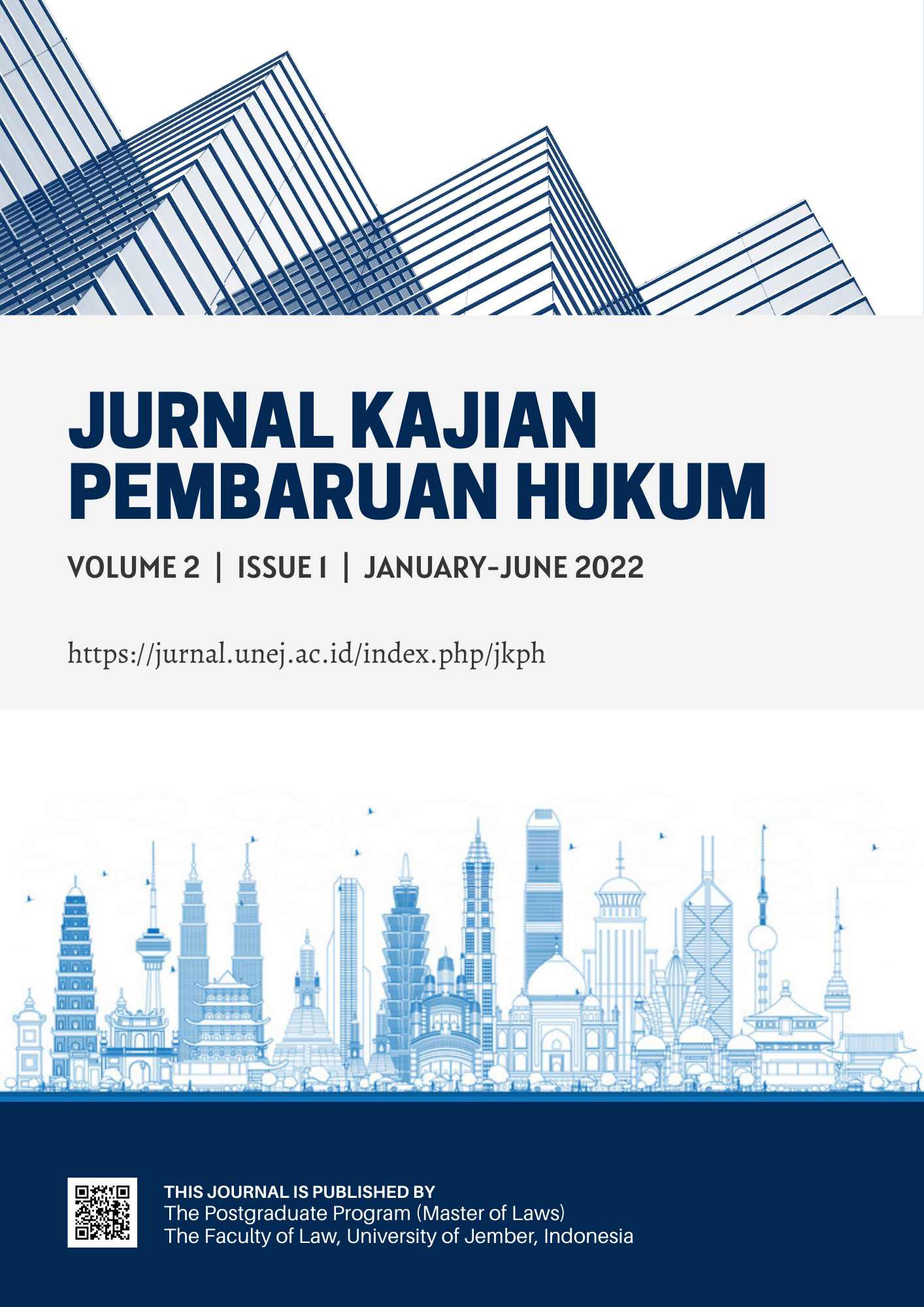Kriminalisasi dalam Tindak Pidana terhadap Penetapan Hasil Pemilihan Umum
DOI:
https://doi.org/10.19184/jkph.v2i1.26674Abstract
ABSTRACT: The stages of determining election results have important characteristics; because it determines the party who wins the election and, at the same time, proves the legality and legitimacy of holding the election. Nevertheless, there are various problems regarding the formulation of policies in criminal acts related to the determination of election results. This research on the formulation of criminal acts associated with election results is normative research with a statutory approach, a conceptual approach, and a comparative approach. This legal research aims to discuss the formulation of the crime of 'late setting election results' and 'not determining election results; while at the same time reviewing future projections by formulating an ideal formulation regarding the formulation of the criminal act of determining election results. The results of the study state that the formulation of criminalization policies in illegal acts related to the determination of election results is regulated to meet various legal problems, including the dimensions of action, the dimensions of criminal responsibility, and the dimensions of criminal sanctions. Then, by taking references from Canada and Kenya, the projections of the formulation are prepared by specifying two objects of action, namely the act of not determining the election results and the act of being late in determining the election results as a crime. Completing the formulation was followed by a complete determination of the subject of a criminal offense accompanied by intentional errors and the formulation of flexibility-based sanctions oriented to avoiding sentencing disparities.
KEYWORDS: Criminalization, Criminal Act, Determination of General Election Result
Downloads
Downloads
Published
Issue
Section
License
Copyright (c) 2022 Jurnal Kajian Pembaruan Hukum

This work is licensed under a Creative Commons Attribution-ShareAlike 4.0 International License.







